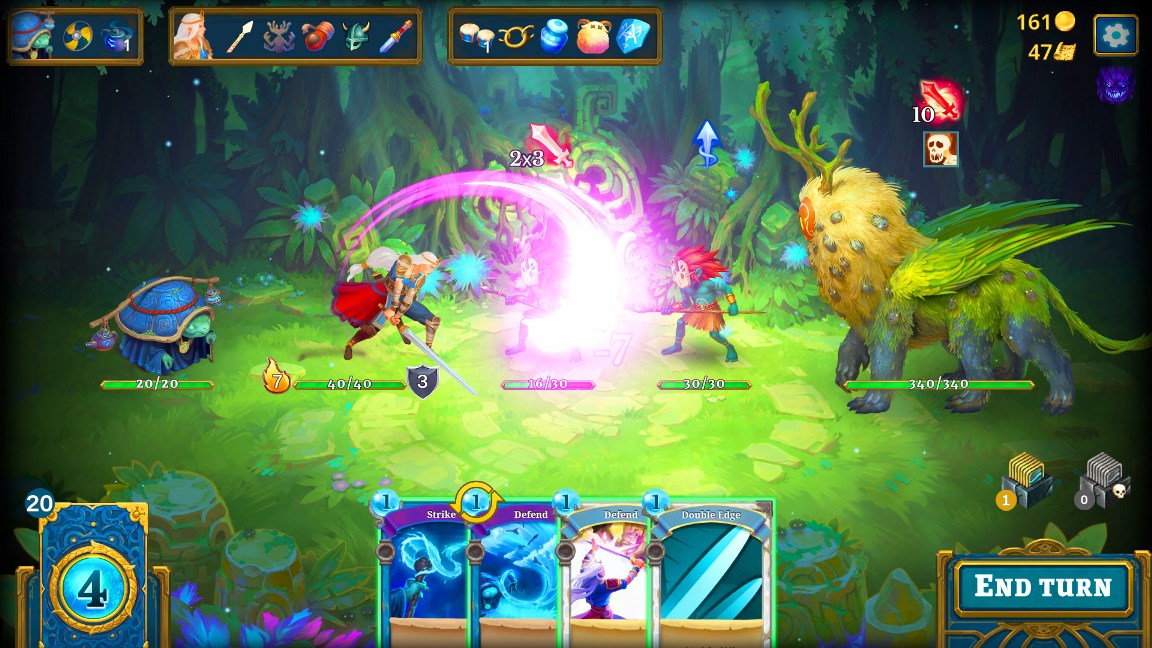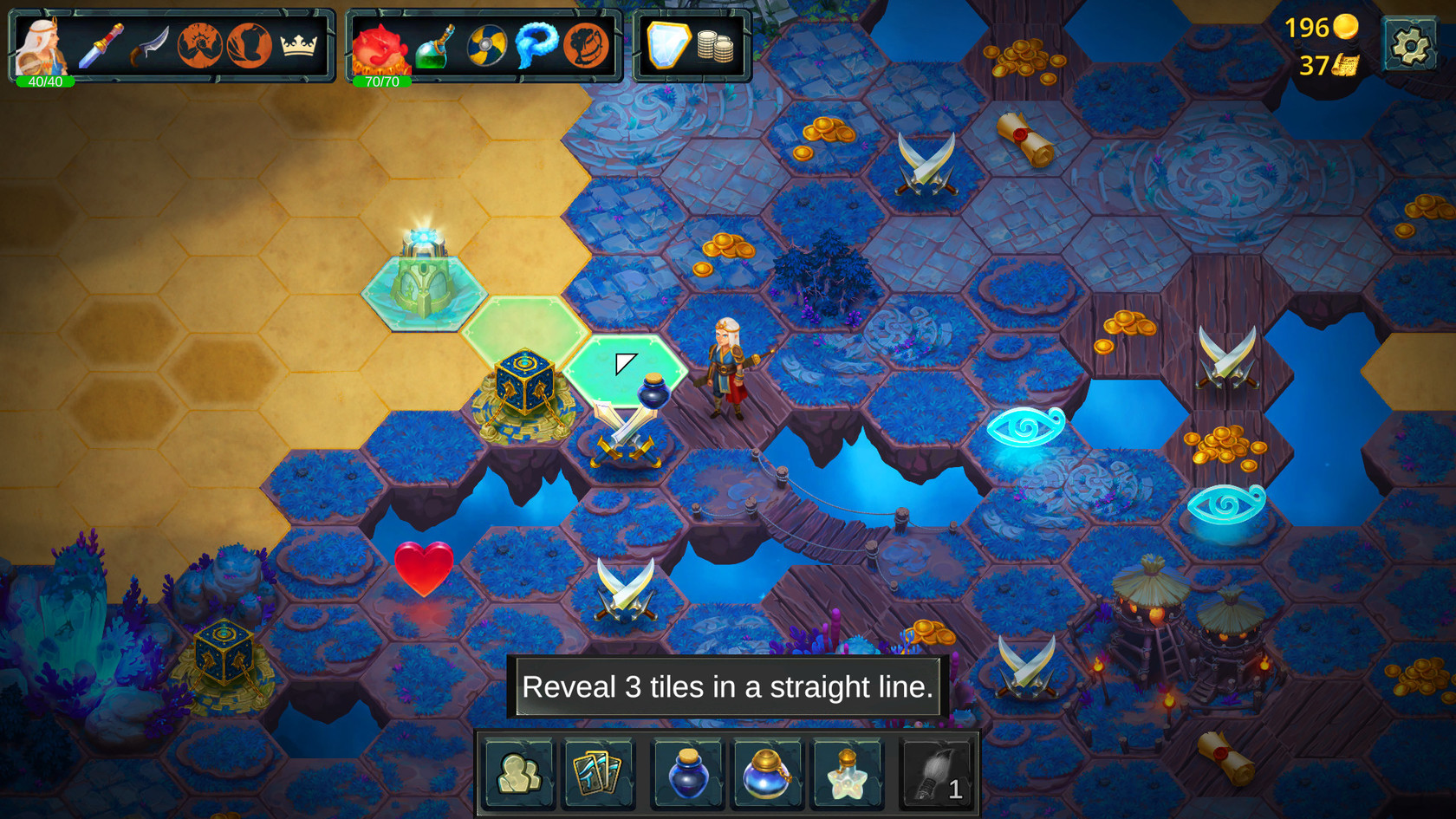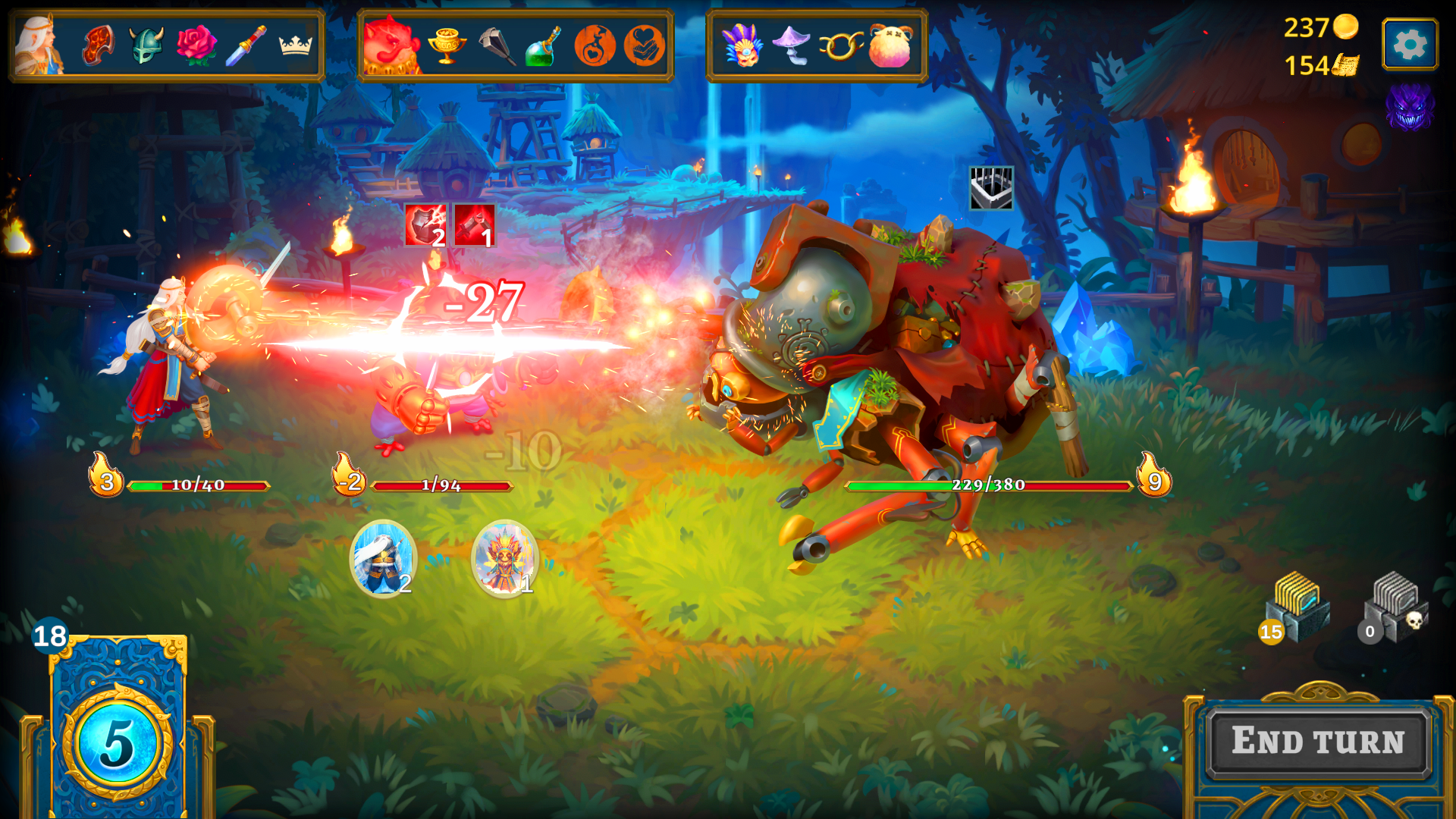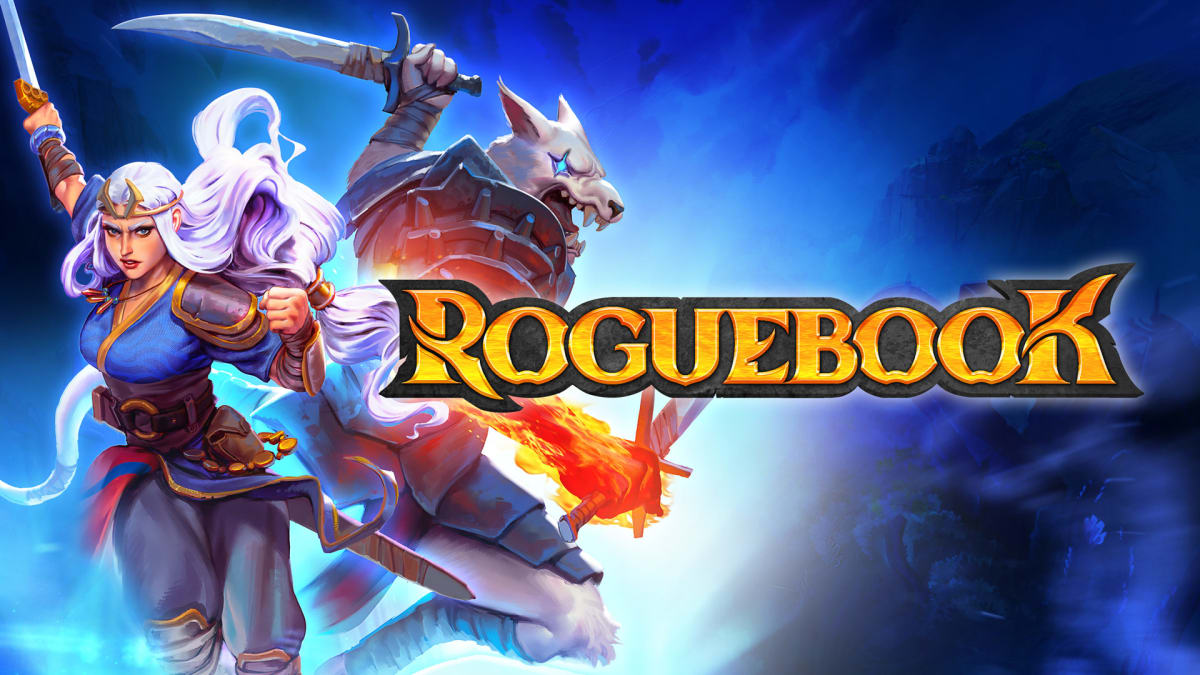I have to be honest and admit that deck building games usually aren’t my thing. There’s usually the same hook that causes me great frustration: random luck. Yet I find myself constantly pulled in with a deck building game that offers something unique and special. With Roguebook, there’s a unique presentation and dual hero battle system to keep deck building genre fans, and newcomers, interested for the long-haul.

Once you’re dropped into Roguebook’s world, the overworld map is completely blank. The only way to fill in the overworld is to paint it, thus revealing various objects. These can range from new cards to add to your deck, relics, new locations, enemies, to even mythical creatures. Since you can’t see what’s on the blank space, it makes painting each part of the overworld map a unique surprise. Hopefully it reveals new cards that help you throughout your adventure. However, quite often it’s an enemy encounter that puts your deck up for a challenge.
Each enemy encounter involves choosing two heroes to take into battle. This becomes quite a strategic experiment, as you want to choose the heroes who would be best for that particular battle. Choosing the right heroes at the right time will help you be successful when dealing with the multiple powerful foes in each battle. Choosing poorly can result in a quick and decisive defeat in Rougebook, and that’s no fun. Remember the relics I mentioned before? Those are especially handy in battles, as various relics grant you different abilities. One such relic allows your character to block five incoming enemy attacks, which is especially helpful when you’re dealing with multiple enemies at once.

The unique twist with how enemy encounters go is how you choose to use your two heroes. Essentially, Rougebook has a number one and number two seat in any battle. This adds yet another layer of strategy to each battle, as you need to juggle who should be the first seat and who the second. If you choose a character to be your main attacker, they should be in front. This allows you to choose a different hero who is a great shield or defense character as your number two seat, thus giving your attacking character more defense. There’s a number of different dual seat combinations you can do in any given battle, and it will largely determine how the battle turns out. There are also allies you can use within a battle. These allies can prove to be extremely useful, allowing you the possibility of getting cards previously used back into your deck.
My major issue with Roguebook is the same issue I have with just about every deck building game. How you do in the game isn’t just based on how you, the player, strategize, but mostly on luck of the draw. You were randomly given cards when you paint sections of the overworld, and I stress the keyword randomly. You’re never guaranteed to get a good card during your adventure, which means some fights will take a frustratingly long time to complete simply because you don’t have good enough cards for the battle. I realize this is part of the strategy of deck building games and ultimately can be a very compelling reason why people keep playing deck building games. However, it does feel a bit unfair to play Rougebook for a few hours only to get into a fight you have no chance of winning simply because the game didn’t reward you with a good enough card deck to complete the battle. Yes, there are ways to improve your deck within the game. Spending gold or using gems allows you to upgrade cards or even change cards outright. Yet most of the time, your success is directly connected to a random system granting you cards. That might appeal to some people, but for me it brought a lot of the fun in each gaming session to a halt. It’s not a deal breaker, but it definitely spoiled the fun I was having.

Ultimately, is Roguebook a good game you should play? If you’re a fan of the deck building genre, absolutely. Rougebook offers enough unique takes on gameplay to create a compelling experience for those highly interested in deck building games and a fun experience for those who aren’t quite as familiar with the genre. The dual hero system and presentation truly makes Rougebook stand out. However, the usual issues with the deck building game remain. It’s the random luck of the draw as to whether you’re given good enough cards to succeed in battle. Otherwise, you have to grind your way around to find useful cards or upgrades to help you. It might not be a game for everyone, but Roguebook is definitely worth checking out.
Review: Rougebook (Nintendo Switch)
Fair
Rougebook offers enough unique takes on gameplay to create a compelling experience for those highly interested in deck building games and a fun experience for those who aren’t quite as familiar with the genre. The dual hero system and presentation truly makes Rougebook stand out. However, the usual issues with the deck building game remain. It’s the random luck of the draw as to whether you’re given good enough cards to succeed in battle. Otherwise, you have to grind your way around to find useful cards or upgrades to help you. It might not be a game for everyone, but Roguebook is definitely worth checking out.


